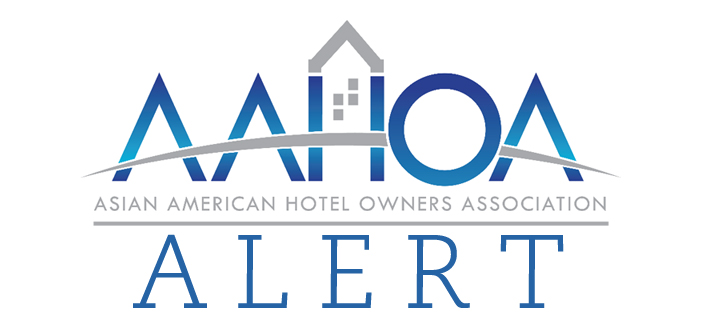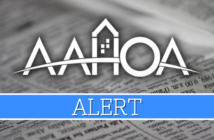Asian American Hotel Owners Association’s petition challenges that state’s voluntary tax agreement with Airbnb violated proper approval process and public disclosure
- Petition maintains that tax agreement with Airbnb should have been subject to a public rulemaking process as required under the state’s Administrative Procedures Act.
- Petition asserts that the state’s tax agreement prohibits the state and dozens of local governments from obtaining detailed information that is necessary to verify accurate tax collection.
- These taxes collected are designed to fund state, county, and city services such as mass-transit facilities, health care services to indigent populations, and land purchases for conservation and recreation. Hotels must pay these taxes and are subject to robust audits.
TALLAHASSEE, Fla., Feb. 26 – The Asian American Hotel Owners Association (AAHOA) has filed a petition challenging the Florida Department of Revenue’s voluntary tax collection agreement (VCA) with Airbnb. The challenge alleges the VCA was adopted without following the proper rule-making process, and the Department lacked the legislative authority to enter into the agreement.
The petition, filed February 26 with the Division of Administrative Hearings, maintains that the VCA with Airbnb (adopted in 2015) should have been subject to a public rulemaking process as required under the state’s Administrative Procedures Act.
“Airbnb negotiated its secretive agreement with the state of Florida behind closed doors with no opportunity for public input and zero transparency,” said Rachel Humphrey, interim president and CEO of AAHOA, which counts approximately 1,100 hoteliers in Florida among its members. “While traditional lodging providers adhere to strict tax collection and remittance laws, the VCA essentially allows Airbnb to operate under their own honor system with no way to verify whether they are collecting and remitting all applicable taxes. Airbnb and other short-term rentals should be held to the same standard as law-abiding lodging businesses in Florida.”
Airbnb’s VCA prohibits the state and dozens of local governments from obtaining the detailed information that is necessary to verify accurate tax collection. This means Florida taxpayers and government agencies have no way to ensure that Airbnb is paying what it truly owes.
“Online lodging marketplaces operating in our state can benefit the economy, but the appropriate short-term rental tax system would require these online marketplaces to collect and remit all applicable hotel and lodging taxes in a fair and transparent fashion,” said Brewster Bevis of Associated Industries of Florida. “Taxes are not ‘voluntary,’ and all similarly situated businesses should follow the same collection rules. How much in state and local tax revenue is potentially being lost because of this lack of transparency and accountability?”
Transient rental taxes should be collected on all short-term lodging accommodations in Florida. These taxes collected are designed to fund a wide-range of state, county, and city services such as mass-transit facilities, health care services to indigent populations, and land purchases for conservation and recreation. Hotels must pay these taxes and are subject to robust audits by the Department. Under the VCA, Airbnb is not subject to the same rules.
Airbnb’s VCA with Florida requires that any government audit must be done using anonymous user data and prevents state and local tax agencies from sharing information. This makes it impossible to identify owners of illegal rental listings or rentals that are not complying with existing regulatory laws. It also only calls for aggregate data on gross rent and tax due to be reported to state and local governments, which is not enough to ensure they are collecting all applicable taxes.
The VCA also allows Airbnb to withhold information necessary to enforce regulatory and business licensing rules on short-term rental properties booked via Airbnb.
A Bloomberg report recently concluded that VCAs create a system lacking in certainty and stability for governments because they can be terminated at any time and lack transparency – making proper oversight from tax officials “difficult, if not impossible.”
“The state’s current tax agreement allows Airbnb to effectively operate under its own honor system, as do similar tax agreements at the local level,” said Anne Gannon, Palm Beach County Tax Collector. “Florida’s taxpayers and communities are potentially being shortchanged if these short-term rental marketplaces are not collecting and remitting the full amount of taxes owed. There is no public benefit to letting them avoid paying taxes that are dedicated for important local uses, such as health care to underserved populations, trauma care services, and community recreation and conservation.”



